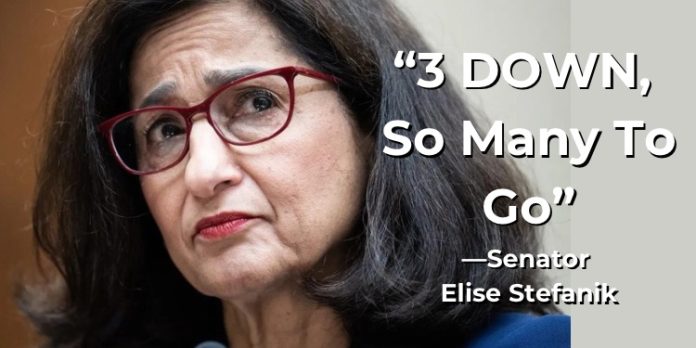In a surprising turn of events, Minouche Shafik, the president of Columbia University, has resigned following significant backlash over her handling of student protests related to the war in Gaza. The resignation, announced just weeks before the start of the fall semester, comes after months of intense criticism from both students and faculty.
“This period has taken a considerable toll on my family, as it has for others in our community,” Shafik stated in an email to staff and students. She further reflected, “Over the summer, I’ve been able to reflect and have decided that my moving on at this point would best enable Columbia to traverse the challenges ahead.”
Shafik’s tenure, which began in July 2023, was marked by her controversial response to pro-Palestinian protests on campus. In April, she called the New York Police Department to dismantle a student protest camp, leading to the arrest of 46 students and widespread condemnation from the university community. Faculty members issued statements against her actions and staged walkouts in solidarity with the students, ultimately leading to the cancellation of the commencement ceremony.
Columbia has been at the center of a student-led movement advocating for divestment from Israel, which intensified following Shafik’s appearance before Congress over allegations of antisemitism on campus. Her heavy-handed tactics and the university’s failure to make Jewish students feel safe drew significant criticism.
In her resignation announcement, Shafik revealed that she would be taking up a new role with the UK’s foreign secretary to review the government’s approach to international development. The university’s board of trustees has appointed Katrina Armstrong, CEO of Columbia University Irving Medical Center, as the interim president.
“As I step into this role, I am acutely aware of the trials the University has faced over the past year,” Armstrong wrote. “We should neither understate their significance, nor allow them to define who we are and what we will become.”
The news of Shafik’s resignation was met with celebration by pro-Palestinian protesters. Mahmoud Khalil, a student negotiator, emphasized the continuation of their activism: “Regardless of who leads Columbia, the students will continue their activism and actions until Columbia divests from Israeli apartheid.”
This leadership change follows the resignation of three deans who exchanged disparaging texts during discussions about Jewish life and antisemitism on campus, further highlighting the internal strife at the university.
Elise Stefanik, a congressional representative critical of Shafik, summed up the sentiment of many critics: “THREE DOWN, so many to go,” referring to the resignations as overdue in the face of alleged failures to protect Jewish students and manage campus protests effectively.
Columbia University now faces the challenge of healing a divided community and addressing the ongoing demands for social and political changes on campus.








